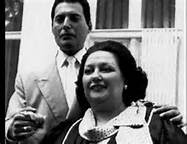Freddie Mercury: Living On The Edge
For over twenty years, Freddie Mercury ruled supreme as the frontman and lodestar of one of the most popular, colourful and biggest-selling bands in rock history. From their debut album in 1973 to the release of Innuendo in 1991, Queen - Freddie Mercury, Brian May, Roger Taylor and John Deacon - charted an astonishing forty-one Top 40 singles, including three number ones. Of the nineteen albums they released, eight reached number one. And throughout this hugely successful time, there was Freddie Mercury - extrovert, phenomenally gifted, flamboyant showman - wowing each successive audience and listener with his superb vocal pyrotechnics and extraordinary shows. In this affectionate and revealing updated biography, David Bret presents a completely rounded portrait of the megastar still mourned by millions, twenty years after his death. Based on exclusive interviews with Mercury's close friends, fellow musicians and lovers who have spoken with great warmth of his loves, heartbreaks, triumph and anxieties, Bret traces the spectacular life of this rock icon, from his obscure youth in a remote part of India to his final, courageous battle against AIDS - the terrible disease that robbed the world of one of its greatest stars.
Introduction
You can have everything in the world and still be the loneliest man—that is the most bitter type of loneliness. Success has brought me world idolization and millions of pounds, but it's prevented me from having the one thing we all need—a loving, on-going relationship.
This was Freddie Mercury—pop icon, showman, raconteur, diva, authority on the human condition, clown-prince and unquestionable genius—speaking in a rare interview with the News of the World in April 1985. The occasion commemorated the release of his first solo album, Mr Bad Guy, comprising eleven self-composed songs, several of which may retrospectively be regarded as portentous: 'There Must Be More To Life Than This', 'Love Me Like There's No Tomorrow', 'My Love Is Dangerous', 'Fooling Around'....
Friends and colleagues have readily maintained that Freddie's promiscuity—no different from that of the average pop star, regardless of sexual preference—was precipitated and fuelled by an abject loneliness stemming from a fragmented childhood which, though never lacking in love and affection, had seen him endure lengthy periods of separation from his family. 'My biggest nightmare has always been walking into an empty bedroom,' he admitted once, in a statement reminiscent of those final, torturous Judy Garland concerts in London when she had screamed, 'I don't wanna go home! What is there at home for me?' It was this crippling loneliness which prompted Freddie to say, after performing in front of 250,000 wildly adoring fans in Rio de Janeiro, 'I was the loneliest person there.'
His was the psyche most readily associated with those monstres sacrées, mostly female, who are so embroiled in their public personae—married to their audiences—that any kind of relationship, physical or otherwise, cannot be easily sustained while the legend persists. Yet persist it must, otherwise existence would be meaningless. The list is endless: Bette Davis, Joan Crawford, Rock Hudson, Edith Piaf, Tallulah Bankhead, Marlene Dietrich, Greta Garbo—all greatly admired by Freddie Mercury, all searching for that crock of gold at the end of the rainbow, but only coming close to finding it in the glare of the spotlight.
Like these alter egos, Freddie is to be commended for his honesty. When asked if he was homosexual, James Dean had quipped, 'Well, I'm certainly not going through life with one hand tied behind my back!' Freddie's response to the same question, posed by a journalist from the New Musical Express, was, 'I've had more lovers than Elizabeth Taylor. I've got a big bed which sleeps six. I'm as gay as a daffodil, my dear!' This was Freddie at his most flippant—the newspapers expected an outrageous reply and were never disappointed. A few years later, one could only detect the note of anguish in his voice when he confessed that love, for him, was like playing Russian roulette. He added, 'I try to hold back when I'm attracted to someone, but I just can't control love. It runs riot. All my one-night stands are just me playing my part.'
This was Freddie's essence, a Janus character who was equally at home telling the media that he was 'essentially a private man', never becoming a spokesman for the gay community, hardly ever expressing his views on contentious issues. On the other side of the coin, however, he was blatantly extroverted, rebellious, more outrageous than any of his contemporaries, and one of the most thrilling personalities of the last half of the twentieth century.
He was probably best summed up by John Marshall of Gay Times, whose lengthy, uncompromising eulogy in January 1992 served as a welcome antidote to the wealth of often pretentious and sometimes downright poisonous obituaries which had appeared in the British press:




No comments:
Post a Comment